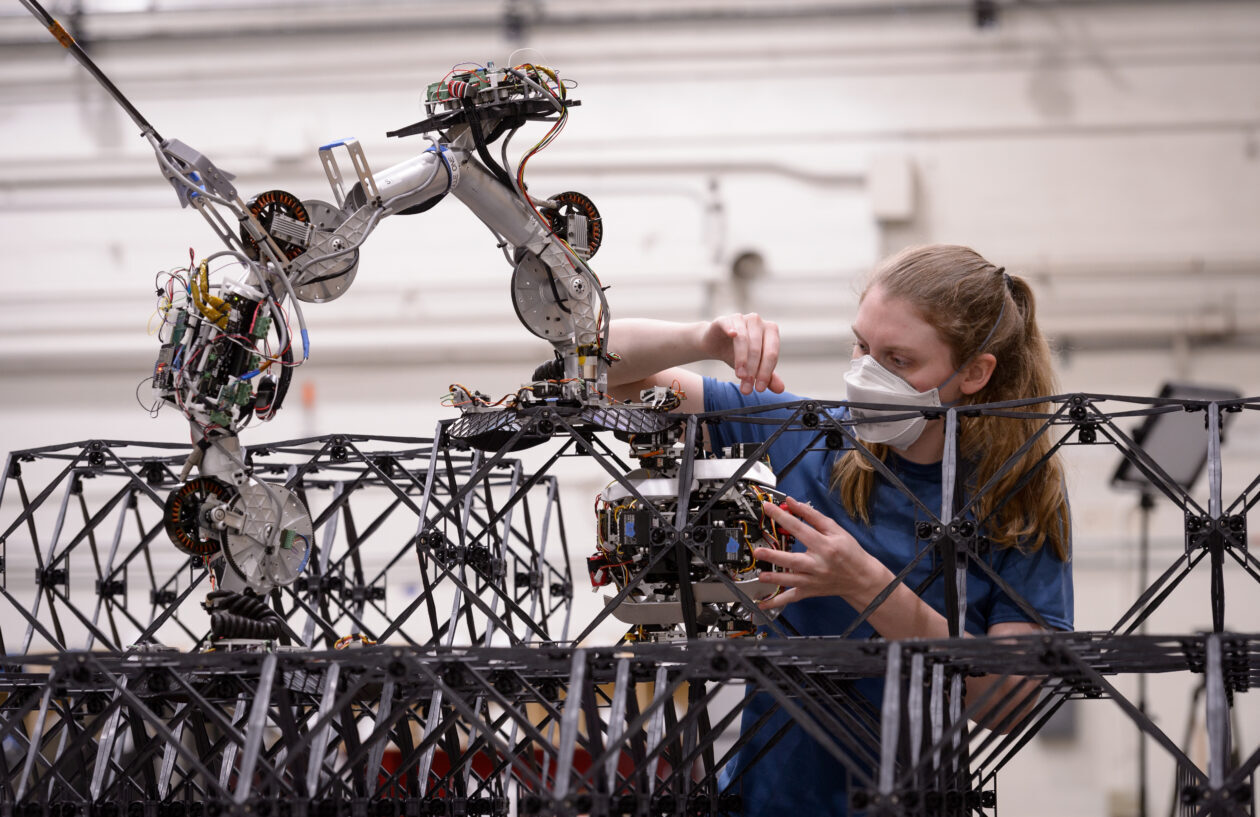“They spent millions of dollars on R&D to try to get to building their spacecraft that manufactured ritonovir [an antiviral drug] in orbit for the first time,” Burk said. “If they had our system, we think they could have cut their research budget maybe in half.”
Athena’s chief product officer is Charles Finkelstein, a veteran tech executive with experience at leading tech companies including Microsoft and Salesforce. Finkelstein said Athena is in “super-super-beta” mode right now, but the system should be sufficiently mature to show off to potential investors by the end of the year.
Athena is being built on Microsoft’s Azure AI cloud platform. It fits into a category known as LLM + RAG — that is, a large language model that uses retrieval-augmented generation to optimize the return of relevant results. Athena would combine search-engine tools with curated expertise in space engineering.
Finkelstein said the AI agent could be tuned to reflect different perspectives on the right technological approach to a problem. “Ask it anything you want, and you get the answer in multiple personalities,” he said.
A biotech prize for turning chemicals into food
On the biotechnology front, the Mars Society plans to offer an incentive prize for methods that use microbes to convert simple chemicals, such as methane or methanol, into food.
Zubrin said such food production methods could be 100 to 1,000 times more efficient than conventional agriculture. That level of efficiency would be particularly valuable on Mars, which can’t match the levels of sunlight and nutrients that are available on Earth. Zubrin envisions a system that could produce methane or methanol from the carbon dioxide and water that’s available on Mars, and then turn it into something like Vegemite.
“It turned out that the idea actually is good — so much so that there are a couple of companies in China that are working on doing exactly that,” Zubrin said. “The problem with that is that if we want to get investment to do it our way, it makes it hard to get an investor unless you have something really unique.”
The Mars Society’s prize would reward teams that come up with ways to improve the efficiency of the process, or the tastiness and nutritional value of the resulting product. (The microbial methanol-to-protein conversion process is currently being used to produce fish food rather than food for humans.)
“We’re going to be announcing this contest, and there will be awards,” Zubrin said. “People are encouraged to do experimental work to validate their claims. The winners will be chosen before our next international conference, which will probably take place here in Seattle as well. If the process is attractive, we will offer to patent it at our expense, and give the inventor a piece of equity in the company that is produced by commercializing that patent.”
The XPRIZE Foundation specializes in this kind of prize program, but the Mars Society has done prizes as well, albeit on a smaller scale. In 2020, for example, the society conducted a Mars City State Design Competition that awarded $10,000 to the top contestant.
Robots to serve humans on Earth or Mars
The Mars Society hasn’t yet identified a specific project in robotics, but Burk has some ideas about the sorts of projects that could address the needs of future communities the Red Planet. The applications of interest include:
- Robotic AI field assistants that could provide real-time data processing and analysis, and enhance the decision-making capabilities of human explorers.
- Construction robots that could autonomously assemble infrastructure on Mars, including habitats, life support systems and landing pads.
- 3D printing technologies that enable rapid production and recycling of materials on Mars, reducing reliance on Earth-based supply chains.
- Debris removal robots that can identify, collect and dispose of debris.
- Robotic life support systems that can ensure reliable air, water and food production on Mars, plus robots to maintain and repair such systems.
- Swarm robotic systems that can achieve complex tasks, such as planetary exploration and resource extraction.

